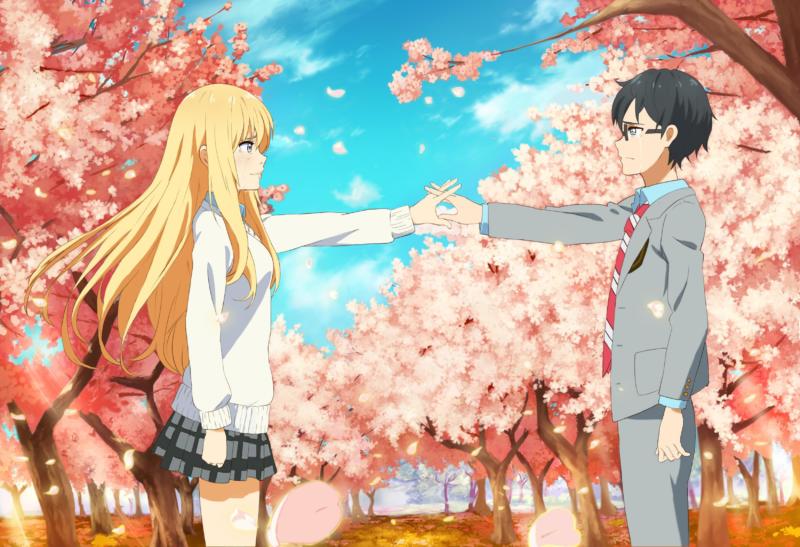
They inspire and pull people out of despair. These people have their own problems and wrestle with depression, but they truck on. What’s more, these people are unseen. And guess what, you are one of them. You just may not know it. Enemies and friends can inspire us to be more and do more. Enemies can push us to try harder and break out of the daily grind. Friends provide support and push us to face our enemies. Enemies can be people, pianos, a difficult game, or anything that challenges us. Friends help us remember the importance of small moments.
Amidst the feeling of meaninglessness small moments shine. They break through our mistaken view of life and the feeling of meaninglessness comes from this mistaken view. The anime Your Lie in April touches on the idea of friends and enemies breaking depression.
Your Lie focuses on how loss can make even things we love feel meaningless. Kosei Arima losses his mother and his interest in playing the piano at the same time. Without music, he becomes a shadow of himself. All of that changed when he meets Kaori Miyazono, a female violinist that forces him to return to the piano. After she pushes him, Kosei encounters two competitors who wish to beat him as pianists. Kosei’s ability to play as a child inspired his two rivals to take up the instrument.
At the core of the story is Kosei’s mistaken perception. He begins to place all of his focus on Kaori. He uses her as a crutch to avoid his feelings of meaninglessness, guilt, and sorrow for his mother. This isn’t fair to her, nor does it work. Mistaken perception is rooted in skewed expectations. The ideas we have of life — much like Kosei’s ideas about music–cannot match reality. Reality cannot compare to the expectations we form. Reality is messy, and basing perception on what we think should be creates issues. Kosei doesn’t want a world where his mother withered and died, but death is a part of reality. I agree that no one should have to die, but everyone must die. You must. I must. This reality can make us feel as if life is meaningless. After all, everything we strive for will mean nothing. Money and fame mean nothing to us after death.
Such thinking is mistaken. It comes from expectations that what we do lasts. It comes from the mistaken idea that money and fame matter. In Your Lie, Kaori’s focus is to make music that will touch people. She wanted to live on in the hearts of those around her. The influence we have on those around us is what gives life meaning. Fame and money and similar things are just distractions. Reality is harsh. Our physical selves must die, but the music we make while we are alive, the melody we leave in the hearts of those we touch, continues. As people continue to influence each other, we continue to be passed on.
The meaning of life is simple. Too simple for our expectations to grasp. After all, expectations enjoy grand things. But the meaning of life is to live. How we live creates music, for good or ill. As a Christian, serving God is a part of that music. While I cannot make actual music like Kaori and Kosei–I am terrible at anything like that–I try to make spiritual music that helps those around me. We all want to reach someone. Touch someone’s soul. We only lose our way sometimes. In Ephesians 5:19, Paul writes:
…speaking to yourselves in psalms and hymns and spiritual songs, singing and making melody in your heart to the Lord.
While most Christians use this verse to support the practice of singing in worship, the verse goes deeper than this. Psalms, hymns, and spiritual songs can be sung through actions, not just words. Singing and making melody in the heart doesn’t involve the lips. It involves how we view the world around us. It involves how we reach out to people and resonate within them. The verse demands Christians have a singing heart for the world around us. It is beautiful, after all. Beautiful because of its flaws and struggles, not despite them. The verse calls on Christians to share that singing heart with other Christians and with God.
Kaori and Kosei likewise share their singing hearts: the bittersweet pain of love and loss, the pain of coming to terms with reality. Singing within cannot always be joyful, but it is always beautiful. Singing hearts often feel isolated. We cannot know if others are listening. We can only have faith that they are. We can only have faith that the messages our lives express are heard.
This idea of faith is found throughout Your Lie. Kaori and Kosei make music with the belief that someone, anyone, might hear and feel touched by the soul producing that music. So too Christians have faith that our actions, our silent psalms. are heard by those around us. We cannot see the impact we have on others, but it is there. Have you been to a funeral where dozens of people file in, people you never knew, to pay respects to the deceased? Sometimes death is the only way to see what lives have been touched by a person. In life, we can be unaware of our impact. In Your Lie, Kaori wasn’t fully aware of her impact upon the characters around her.
A life cannot be lived in isolation. We affect those around us and are affected by them in turn. Even when we are unaware of it, our words and actions matter. Each of us needs to decide what songs we play, what feelings we leave behind. Our audience listens.
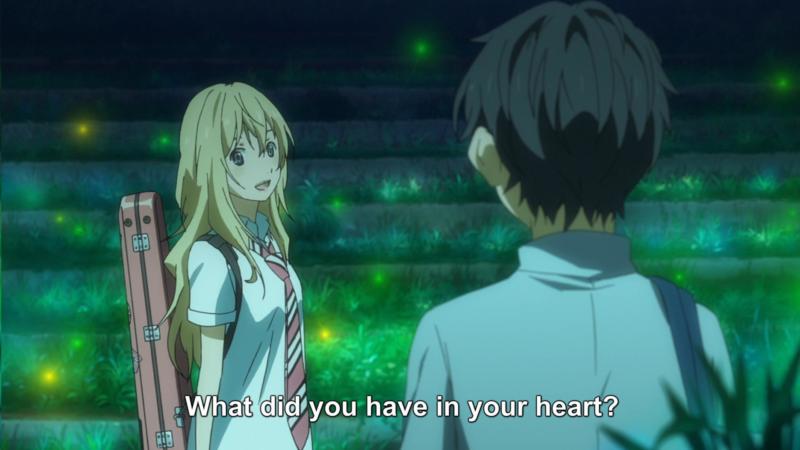
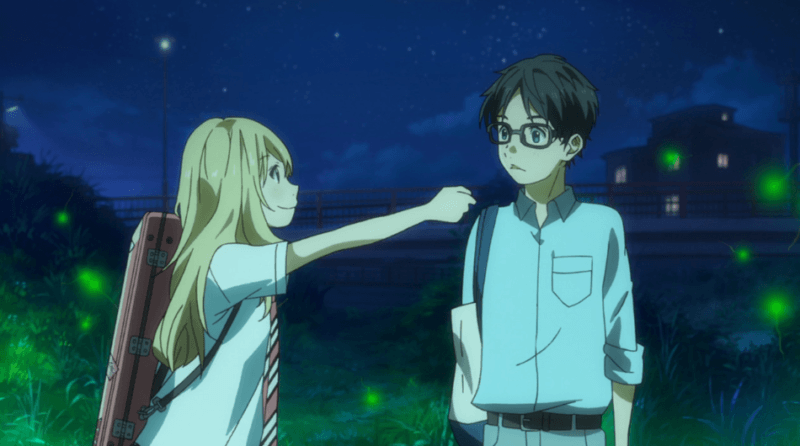

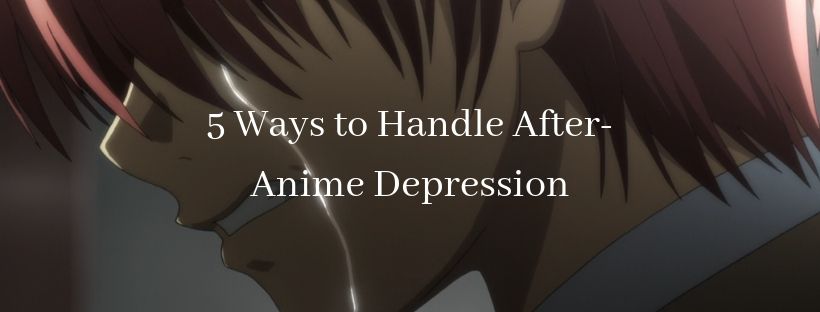

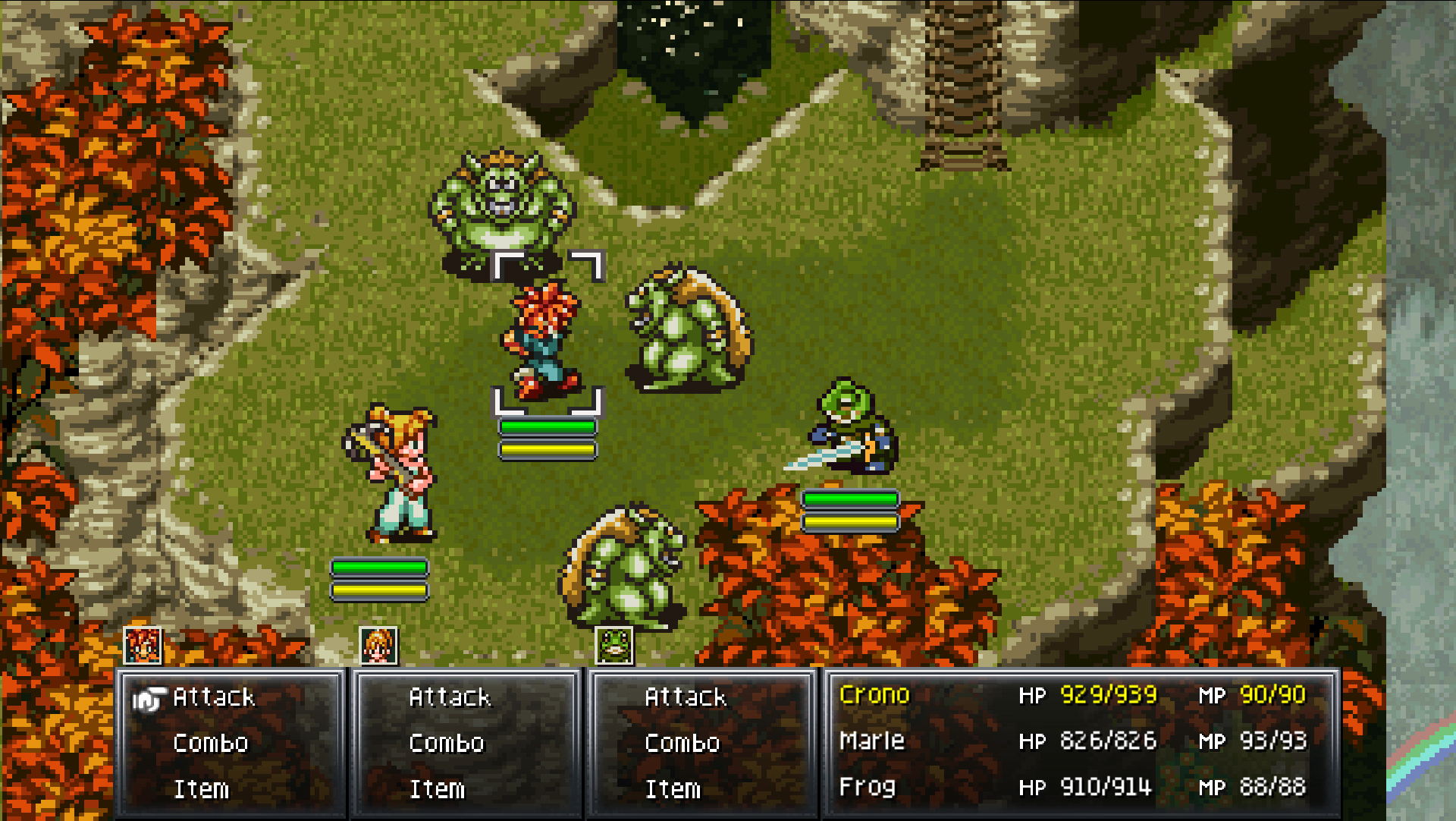

This was a beautiful article. I’m off to watch this anime now. Thank you!
Enjoy it! I certainly did.